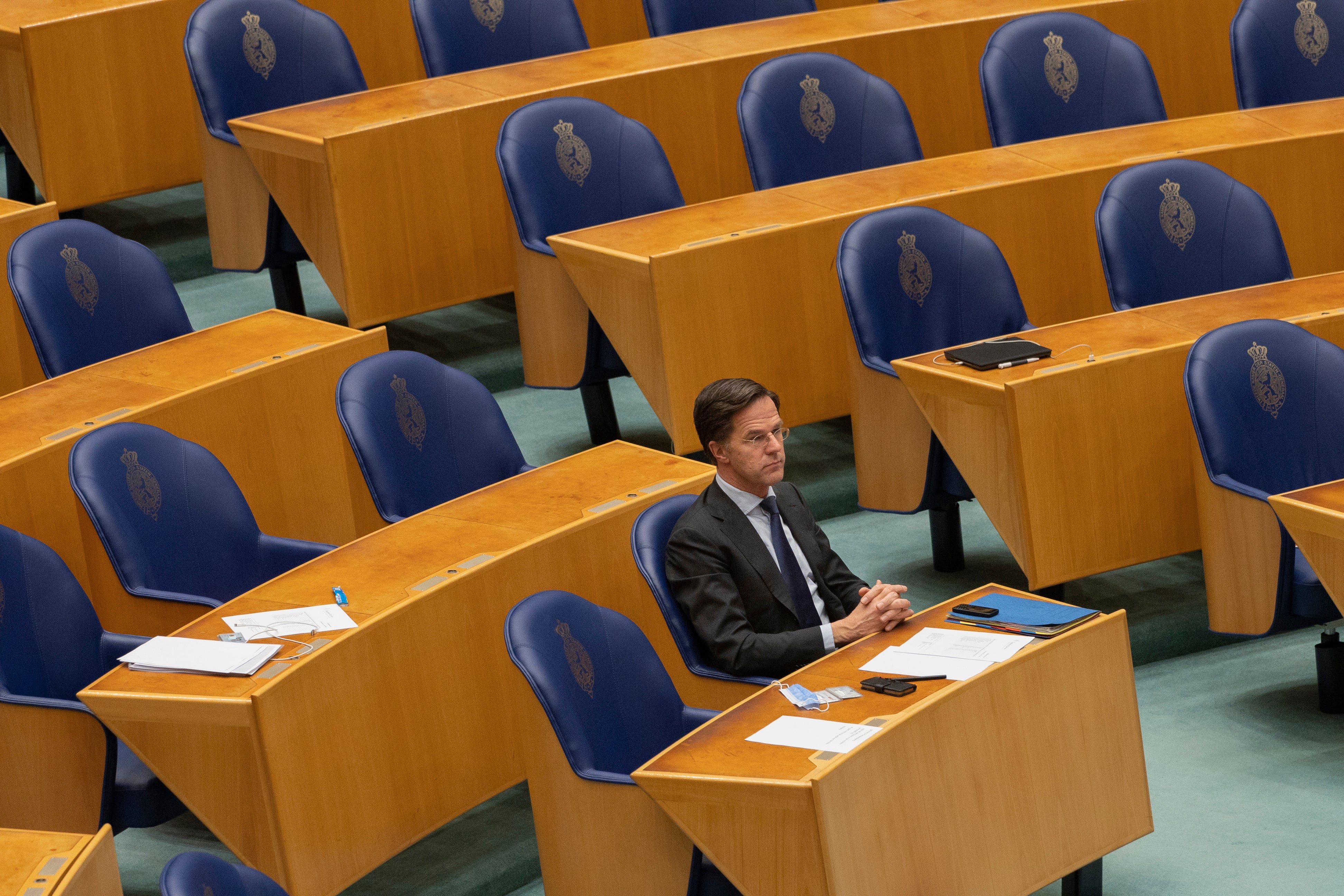Balancing act: Dutch PM eases lockdown amid infection rise
The Dutch caretaker prime minister has announced a significant easing in his country’s months-long coronavirus lockdown

Your support helps us to tell the story
From reproductive rights to climate change to Big Tech, The Independent is on the ground when the story is developing. Whether it's investigating the financials of Elon Musk's pro-Trump PAC or producing our latest documentary, 'The A Word', which shines a light on the American women fighting for reproductive rights, we know how important it is to parse out the facts from the messaging.
At such a critical moment in US history, we need reporters on the ground. Your donation allows us to keep sending journalists to speak to both sides of the story.
The Independent is trusted by Americans across the entire political spectrum. And unlike many other quality news outlets, we choose not to lock Americans out of our reporting and analysis with paywalls. We believe quality journalism should be available to everyone, paid for by those who can afford it.
Your support makes all the difference.Dutch caretaker Prime Minister Mark Rutte announced a significant easing in his country's months-long coronavirus lockdown Tuesday, calling it a delicate balancing act as infections remain stubbornly high.
The decision to cautiously relax restrictions reflects difficult choices being made in many countries as lockdown fatigue grows even as positive cases keep rising.
Earlier in the day, the country’s public health institute said that the number of people who tested positive over the last week rose by 5.3% to nearly 54,000. The institute said that the pressure on hospitals and other medical professionals “remains high.”
Even so, Rutte he was taking “a careful step” to ease the lockdown because of predictions that the infection curve is flattening and modeling shows that a decline in hospital occupancy is approaching.
“We really see the tension between the grim reality in the here and now in the hospitals and at the same time that cautious, optimistic outlook,” Rutte said. “That tension is very great for the time being and yet we dare to take this first step now. A step that is still very cautious and careful, because we can afford very few setbacks.”
A nationwide 10:30 p.m.-4:30 a.m. curfew will be lifted April 28. On the same date, bars and cafes will be allowed to reopen their outdoor terraces from noon until 6 p.m. — under strict conditions — for the first time since mid-October.
Nonessential shops also were allowed to reopen, with strict limits on the number of customers. The stores have been partially open for weeks, but only to shoppers who first make an appointment online. Appointments will no longer be needed.
A limit on people having only one visitor to their home per day was eased — two visitors will now be allowed.
Schools were reopened earlier this year. Rutte said Tuesday that students at universities and colleges will be allowed from Monday to be physically present for one day of classes each week.
In a boost for the country's vaccination campaign, Health Minister Hugo de Jonge said the Netherlands would start using the Johnson & Johnson vaccine on Wednesday after the European Union medicines regulator said its benefits outweigh risks. The agency's experts came to the conclusion after finding a “possible link” between the shot and extremely rare blood clots and recommending a warning be added to the label.
___
Follow AP’s pandemic coverage at:
https://apnews.com/hub/coronavirus-pandemic
https://apnews.com/hub/coronavirus-vaccine
https://apnews.com/UnderstandingtheOutbreak